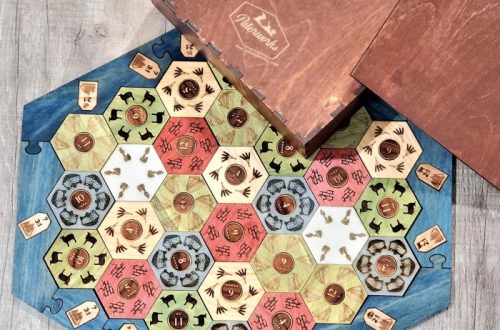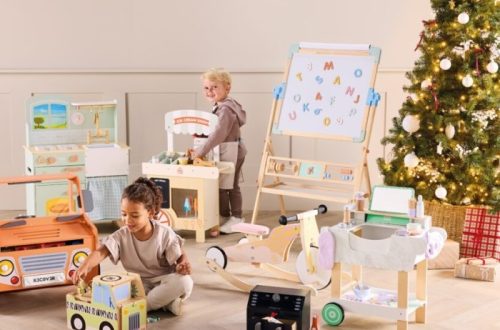Part 1: Introduction
The sight of toddlers engrossed in play, their faces alight with joy and imagination, is truly heartwarming. Among the myriad of toys available, the interactive blue car toy has emerged as a popular choice, captivating the hearts and minds of young children. Its vibrant hue and engaging features make it an irresistible addition to any toddler’s playtime arsenal. In this exploration, we will delve into the allure of the interactive blue car toy and uncover the valuable benefits it provides for early childhood development.
The interactive blue car toy is a marvel of modern toy design, meticulously crafted to engage and stimulate a toddler’s senses. Its vibrant color immediately catches the eye, while its interactive features invite exploration and discovery. Toddlers can push buttons, turn knobs, and watch as the toy responds with lights, sounds, and engaging animations. This sensory symphony captivates a toddler’s attention, sparking their curiosity and encouraging them to engage with the toy in imaginative ways.
Part 2: Educational Value
1. Cognitive Development:
Interactive blue car toys can significantly contribute to a toddler’s cognitive development. The buttons, lights, and sounds that these toys often feature stimulate a toddler’s curiosity and encourage them to explore and experiment. This can help them learn about cause and effect, as they discover how their actions influence the toy’s behavior.
For example, a toddler might learn that pressing a button causes the car to make a noise or that turning a knob changes the direction of the car. These experiences can help toddlers develop their problem-solving skills, as they learn to anticipate outcomes and adjust their actions accordingly.
Additionally, interactive blue car toys can enhance a toddler’s understanding of spatial relationships. As they navigate the toy through different environments and obstacles, they are learning to judge distances, angles, and the relative positions of objects. These skills are essential for future learning in subjects such as math and science.
2. Language and Communication Skills:
Language Development:
Interactive blue car toys often incorporate voice prompts or songs that can significantly contribute to a toddler’s language development. By listening to these sounds and phrases, toddlers are exposed to new vocabulary and sentence structures. This exposure can help them expand their vocabulary and improve their understanding of language.
Additionally, interactive blue car toys can encourage toddlers to mimic the sounds and phrases they hear. This can help them develop their pronunciation and articulation skills. By practicing these sounds, toddlers are laying the foundation for clear and effective communication.
Social Interaction and Communication:
Interactive blue car toys can also provide opportunities for social interaction and communication among toddlers. As they play with these toys together, toddlers may engage in conversations, negotiate rules, and share their experiences. These interactions can help them develop important social skills, such as cooperation, sharing, and taking turns. Moreover, these experiences can help toddlers improve their ability to express themselves clearly and effectively. As they communicate with their peers, toddlers are learning to articulate their thoughts and ideas, which is a valuable skill for future social interactions.
Part 3: Motor Skill Development
1. Fine Motor Skills:
Interactive blue car toys can be a valuable tool for enhancing a toddler’s fine motor skills. As toddlers engage with these toys, they are naturally engaging in activities that strengthen the muscles in their hands, fingers, and wrists. For example, turning knobs, pressing buttons, and moving the steering wheel require precise hand movements that can improve a toddler’s dexterity and coordination. These fine motor skills are essential for a variety of daily tasks, including writing, drawing, buttoning clothes, and using utensils. By developing these skills through play with interactive blue car toys, toddlers are laying the foundation for future success in these areas. Additionally, strong fine motor skills can contribute to a child’s overall development, as they are often linked to cognitive and social skills.
2. Gross Motor Skills:
Beyond developing fine motor skills, interactive blue car toys can also contribute to a toddler’s gross motor development. Many of these toys include features that encourage physical movement, such as rolling the car or pushing buttons with foot pedals. As toddlers engage with these features, they are naturally strengthening the large muscles in their legs, arms, and core. Developing gross motor skills is essential for a toddler’s overall physical health and well-being. It can improve their balance, coordination, and strength, which are crucial for activities such as walking, running, and playing sports. By incorporating physical movement into their play with interactive blue car toys, toddlers can get the benefits of exercise while having fun.
Part 4: Creativity and Imagination
1. Role-Playing Scenarios:
Interactive blue car toys can ignite a toddler’s imagination, providing a gateway to creative play. As they interact with these toys, toddlers often find themselves immersed in imaginative scenarios, role-playing as drivers, passengers, or embarking on thrilling adventures. This imaginative play fosters creativity and storytelling skills. Toddlers can invent new characters, develop intricate plots, and envision unique worlds. This imaginative exploration can help them enhance their language development as they express their ideas and communicate effectively. Through imaginative play, toddlers can also develop problem-solving skills as they navigate challenges and find solutions within their imaginary worlds.
2. Problem-Solving and Decision Making:
Interactive blue car toys can be a valuable tool for developing a toddler’s cognitive skills, particularly problem-solving and decision making. As toddlers interact with these toys, they often encounter challenges and obstacles that require them to think critically and make choices. For example, a toddler might need to decide which path to take on a track or how to overcome a ramp. These situations encourage them to evaluate different options, consider potential outcomes, and make informed decisions. This can help toddlers develop their problem-solving skills and improve their ability to think critically.
Additionally, overcoming challenges and achieving goals through play can boost a toddler’s confidence and self-esteem. As they learn that they can successfully navigate obstacles and solve problems, they develop a sense of accomplishment and pride. This can positively impact their overall development and well-being.
Part 5: Social and Emotional Development
1. Sharing and Turn-Taking:
Interactive blue car toys can be a powerful tool for fostering social skills in toddlers, particularly when played in group settings. As children interact with these toys together, they are naturally exposed to social situations that require them to share, take turns, and negotiate rules. These experiences help them understand the importance of cooperation and consideration for others. For example, toddlers might need to take turns pushing the car or deciding who gets to play with a particular feature. By learning to share and take turns, toddlers can develop a sense of empathy and fairness. They begin to understand that others have their own desires and needs, and they learn to respect and consider the perspectives of their peers.
Additionally, these experiences can help toddlers build positive relationships with their peers. When they learn to cooperate and work together, they create a more harmonious and enjoyable play environment. This can contribute to their overall social development and prepare them for future social interactions.
2. Emotional Expression:
Interactive blue car toys can offer a safe and supportive environment for toddlers to express their emotions. As they play with these toys, they may display a range of emotions, from excitement and joy to frustration and anger. These emotional expressions can be valuable opportunities for parents and caregivers to connect with their child and validate their feelings.
By acknowledging and validating a toddler’s emotions, parents and caregivers can help them develop emotional intelligence. This involves understanding and managing one’s own emotions, as well as recognizing and empathizing with the emotions of others. By creating a safe space for emotional expression, parents can help toddlers learn to cope with difficult feelings in a healthy way. Additionally, these interactions can strengthen the parent-child bond. When parents and caregivers show empathy and understanding, toddlers feel valued and supported. This can create a sense of trust and security, which is essential for a child’s emotional well-being.
Part 6: Conclusion
The interactive blue car toy for toddlers is more than just a plaything; it’s a valuable tool for early childhood development. Its interactive features and vibrant color offer a multitude of benefits, ranging from cognitive and motor skill enhancement to fostering creativity, social skills, and emotional expression.
Cognitively, the interactive blue car toy stimulates a toddler’s curiosity and encourages exploration. As they interact with the toy’s features, they develop problem-solving skills, learn cause-and-effect relationships, and enhance their spatial awareness. Motorically, the toy promotes fine motor skills as toddlers manipulate buttons, knobs, and the steering wheel. Additionally, it encourages gross motor skills as they push, pull, and crawl around the toy.
Beyond the cognitive and motor benefits, the interactive blue car toy fosters creativity and imagination. Toddlers can create their own stories and adventures, engaging in imaginative play that enhances their language development and problem-solving abilities. Socially, the toy can encourage sharing, taking turns, and cooperation, fostering essential social skills. Emotionally, it provides a safe outlet for expressing feelings and developing emotional intelligence.



